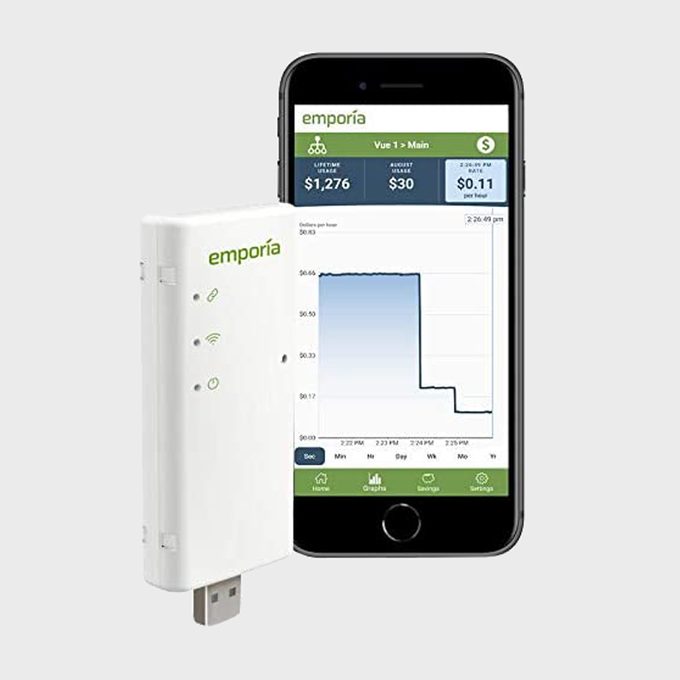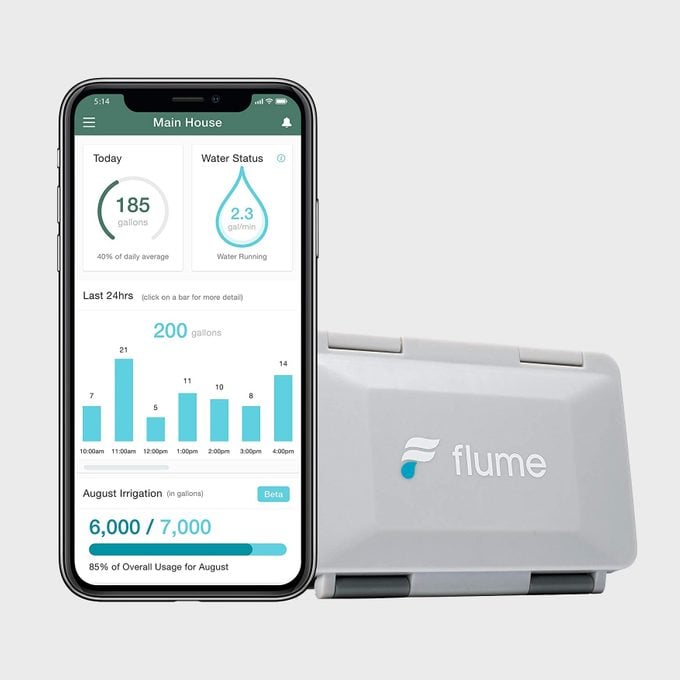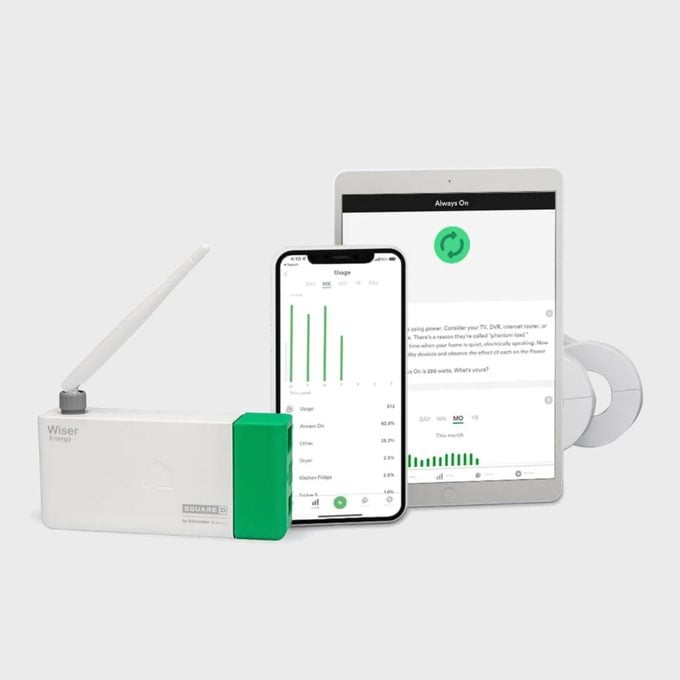Energy meters first appeared on homes in the late 19th century, when early pioneers like Thomas Edison needed a way to charge customers for electricity usage. The original pricing was per outlet, while the electricity itself was free. Sadly, those days are long gone!
Before long, electro-mechanical meters became the norm. Those devices with spinning dials would eventually be attached to the side of almost every home in the U.S. Every month or so, a meter reader came by to note just how much energy — in the form of electricity, water or natural gas — that household used.
In the mid-20th century, automated meter readers (AMR) sent that information directly to the utility. Today, we’re witnessing the next step in their evolution: The smart meter, a interactive device that allows communication between the meter on your home and the utility company providing your service.
Today, according to the U.S. Energy Information Administration, more than 90 million smart meters track residential electrical usage, and millions more monitor gas or water services. Let’s find out how and why smart meters are becoming so common.
What Is a Smart Meter?
The most straightforward definition comes from the Department of Energy: “Smart meters provide two-way communication between you and your utility, helping your utility know about blackouts … to maintain more reliable electrical service.”
The same basic concept holds true for other utilities. The key point is two-way communication. Not only does the smart meter report real-time usage to the utility company, it also receives instructions from the utility — or from you, the consumer.
Pros and Cons of Smart Meters
Smart meter pros
- Real-time usage readings. Smart meters send feedback in regular intervals, letting utility companies track usage almost as fast as it occurs. This allows for accurate billing and quick respond by the utility to usage spikes.
- Automated outage notifications. Similarly, if you have an outage, the company may know about it even before you do! Utility companies can respond to outages faster and with more precision than with traditional meters.
- Variable pricing. That real-time usage also lets companies charge different prices for usage during different times of the day. That’s important in areas that previously had to resort to rolling blackouts to relieve grid demand. It also allows savvy homeowners to control their utility costs by shifting some functions to off-peak hours.
- Net metering. Some smart meters let homeowners with solar arrays feed energy back into the system. The meters track how much energy your array provides the grid, and credits your bill accordingly.
- Appliance usage analysis. Although smart meters track whole-house usage, some models can estimate which appliances are running at what time, and suggest ways to improve energy efficiency. Although not as accurate as single-appliance monitoring, this “non-intrusive load monitoring” can provide homeowners information on how upgrades might improve efficiency.
Smart meter cons
- Security. Any device providing two-way communication can potentially be infiltrated. (Even items as benign as fitness trackers created security issues in the past.) Smart meters are vulnerable to control by outside parties, or to observation that may create safety risks.
- Complexity. The more complex a device, the more ways there are for things to go wrong. So if your meter fails to connect to the utility service, there can be issues with your billing through no fault of your own.
Buying a Smart Meter
In most cases, utility companies install and own home utility meters. If that’s the case where you live, you can’t upgrade to a smart meter on your own.
However, you can install a meter that sits between the utility company meter and your home. These “sub-meters” give you all the detailed feedback and precise control of a smart meter, even if your utility company hasn’t caught up with the technology yet.
Smart sub-meters are available for whole-house monitoring or tracking individual fixtures or outlets. While they lack automated outage reporting, they do allow you to record your utility usage with a great deal of precision and make informed decisions accordingly.
Best Smart Sub-Meters

If you think a smart sub-meter is right for you, here are three great models to consider.
Emporia Vue
If you already own a smart meter and just want to access more detailed information, the Emporia Vue is affordable and easy-to-install.
Simply plug it into an outlet near your existing smart meter, and it will listen in on the data that meter sends to your electrical provider. (It doesn’t work with all providers, so be sure to double-check compatibility before purchasing.) Results will be shared via the Vue iOS or Android app. It’s a great way to track your usage and identify potential savings.

Flume 2 Smart Home Water Monitor
If you want a smart meter for your water supply, consider the Flume 2 Smart Home Water Monitor. Designed to track consumption and catch leaks as soon as possible, the Flume is user-friendly right out of the box.
The Flume runs off a battery-operated unit that clamps onto your existing water meter. That unit then relays data to your home’s WiFi through a nearby AC-powered transmitter. Basic usage and leak detection is included, but you’ll need a monthly subscription model to unlock real-time usage.

Wiser Energy Smart Home Monitor
The Wiser Energy smart meter from Square D is a classic sub-meter. It connects directly to your electrical panel and tracks usage, sharing details on your WiFi and mobile phone app. It also can track solar energy production. Its compatibility with voice assistants like Alexa makes for a fully integrated smart home experience.
Article source here: What Is a Smart Meter and How Does It Work?


No comments:
Post a Comment